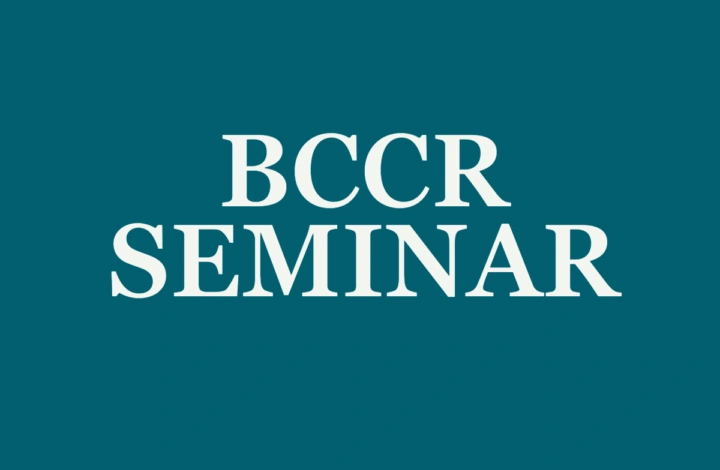Kalender
BCCR Seminar: "Barotropic Trends through Barents Sea Opening for the period 1975-2022, The Underlying Physical Processes explained using Artificial Intelligence"

Tidspunkt
29. oktober 2024, 13:15-14:00
Sted
Bjerknes lecture room (4th floor, room 4020)
Drear all!
We will have a BCCR Seminar on Tuesday 29.10.2024. Robinson Hordoir from IMR and Vahidreza Jahanmard from Tallinn University of Technology will give a talk titled "Barotropic Trends through Barents Sea Opening for the period 1975-2022, The Underlying Physical Processes explained using Artificial Intelligence". The seminar will start at 14:15 in room 4020 as usual, and coffee and biscuits will be served. Well met!
Abstract
Climate models and observations show that the flow from the Nordic Seas to the Barents Sea, through Barents Sea Opening increased during the period 1975-2022, contributing to the « Arctic Atlantification » process. However, the underlying physical reasons behind this trend are still unexplained.
Using Artificial Intelligence, we reconstructed the barotropic flow at Barents Sea Opening, based on wind data over the Nordic Seas. The constraints required to perform this reconstruction provide the first hints on the nature of the trends, which we find to be linked with high frequency processes. This relation is confirmed through sensitivity experiments, as it appears that the Barents Sea Opening flow trend can not be explained by a linear wind trend, nor through a trend in the main wind variability modes. We therefore orientate our research towards a non-linear explanation. Using a second version of a deep learning model on one hand, and idealized 3D ocean modelling simulations on the other hand, we identify the underlying physical processes that explain the Barents Sea Opening flow trend through spectral sensitivity experiments.
About the speakers
Robinson Hordoir is a researcher at the Institute of Marine Research, and the Bjerknes Centre for Climate Research. He specializes in ocean modelling and physical oceanography, and is interested in ocean processes, and changes in ocean processes. He develops regional ocean models based on the NEMO ocean engine, which are used for hindcast and climate downscaling simulations.
Vahidreza Jahanmard is a researcher in the department of Building and Civil Engineering and Architecture of Tallinn University of Technology. His work focuses on the application of machine learning techniques for integrating sea level data sources and forecasting absolute dynamic topography. He is also collaborating with the IMR to develop causal deep learning model aimed at identifying and understanding the drivers of the flow trend in the Barents Sea Opening.
Flere kalenderoppføringer
Se allePandemifrokost: Helsekonsekvenser av klimaendringer i Norden: En kunnskapskartlegging.
